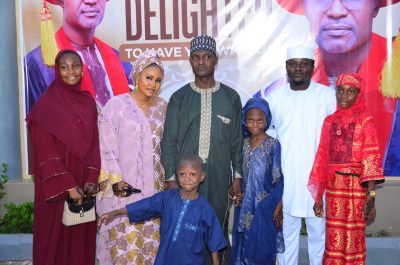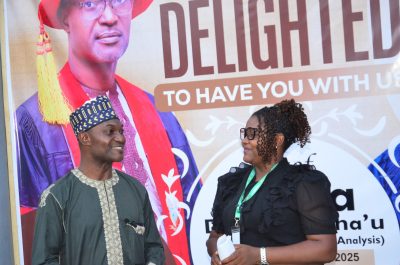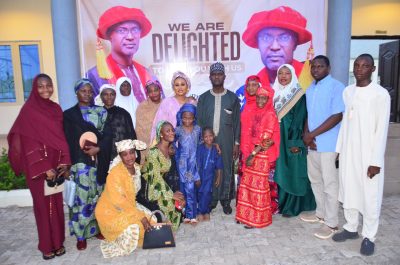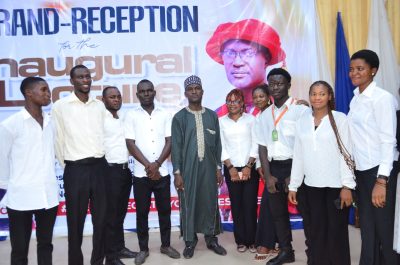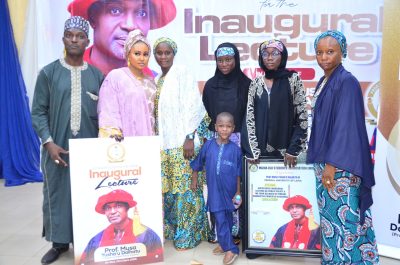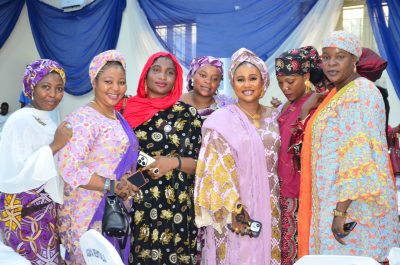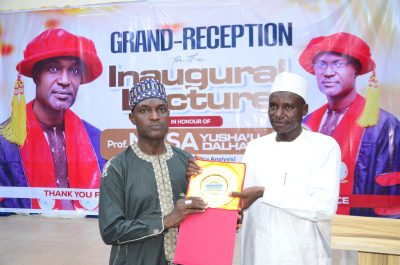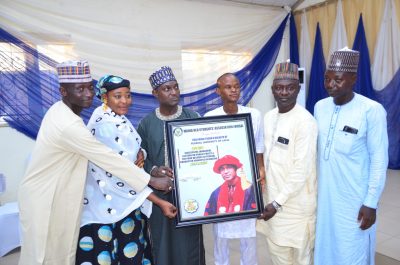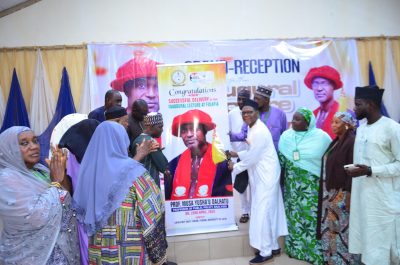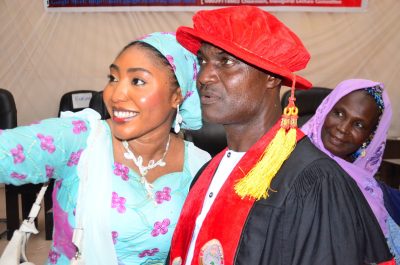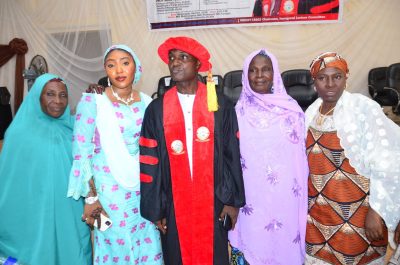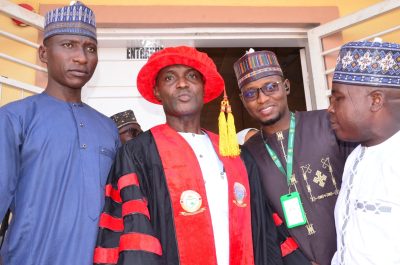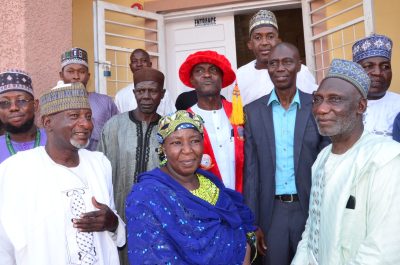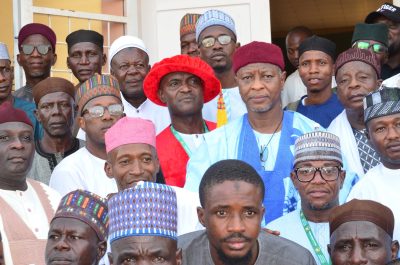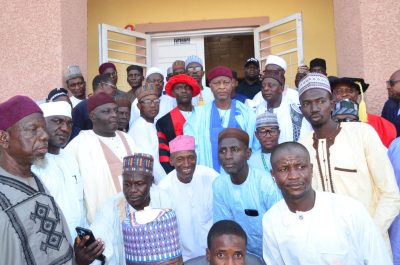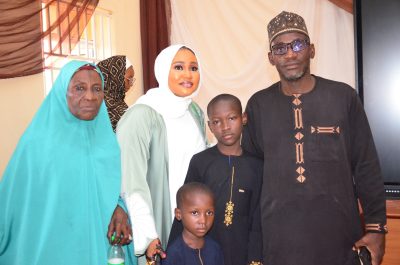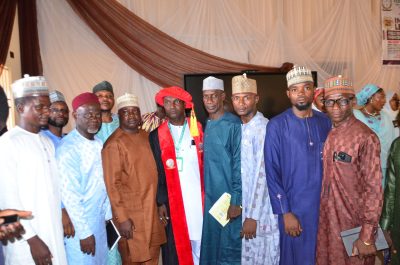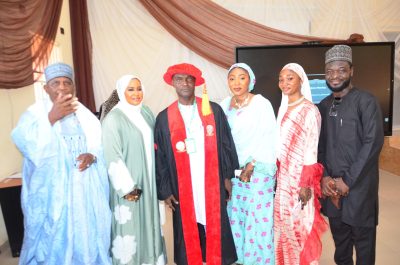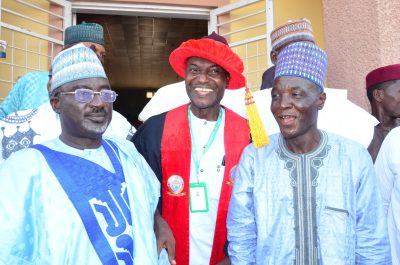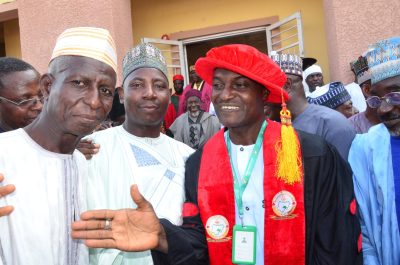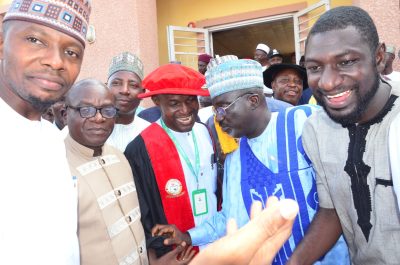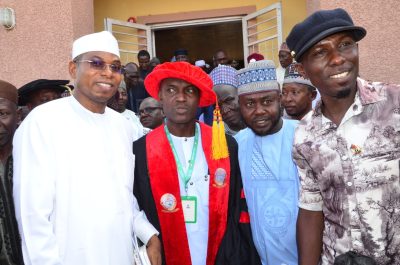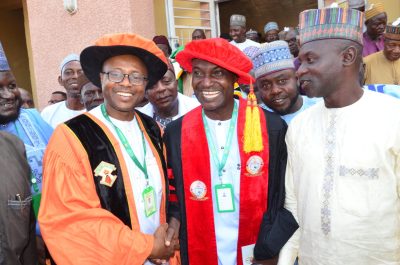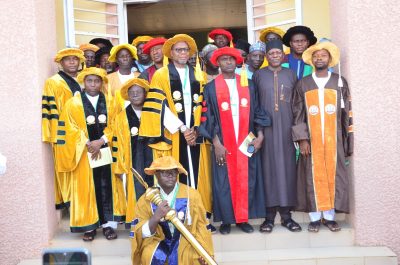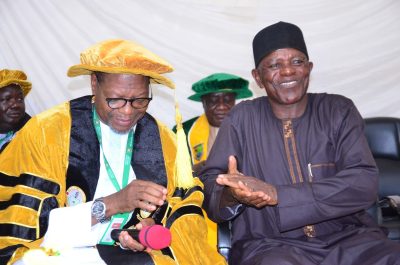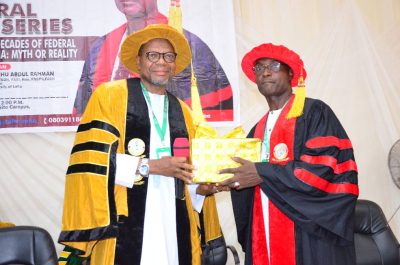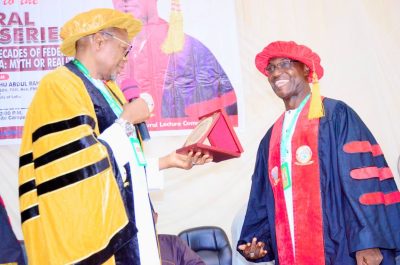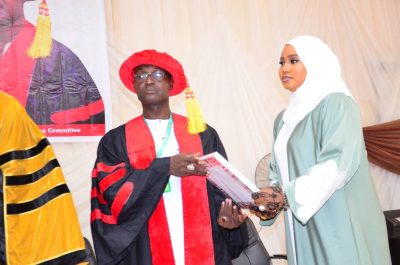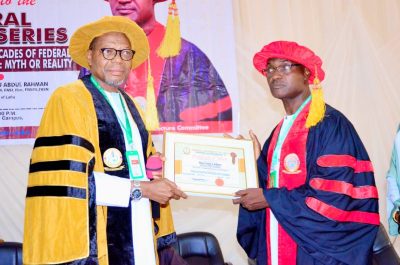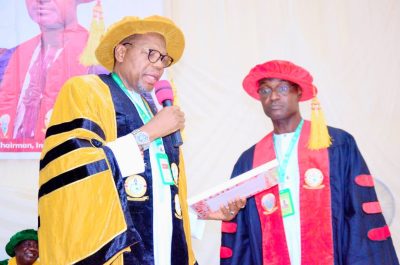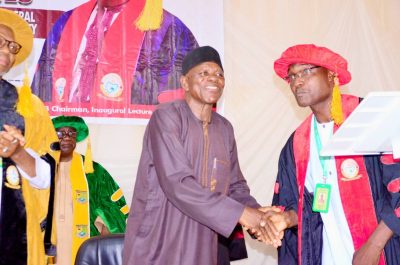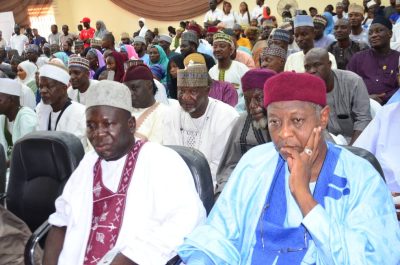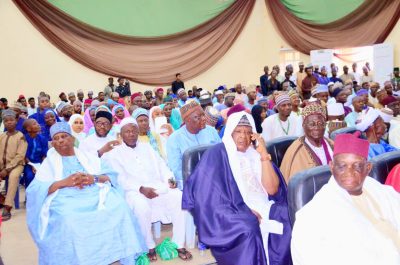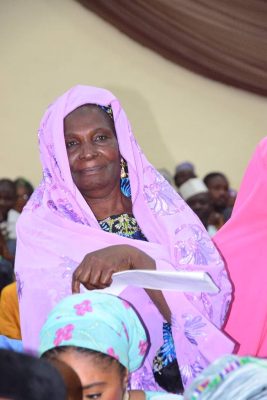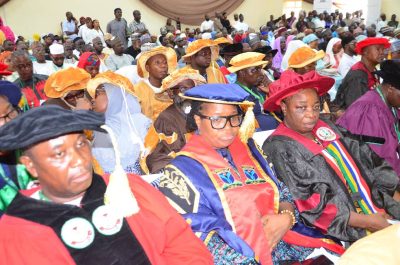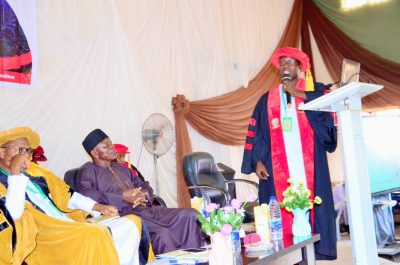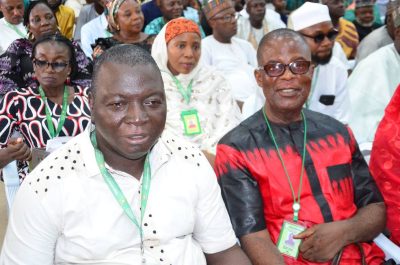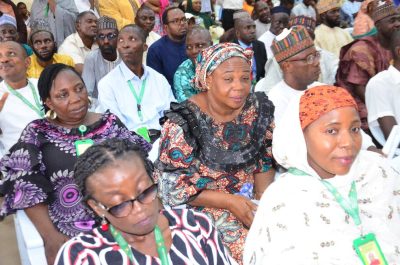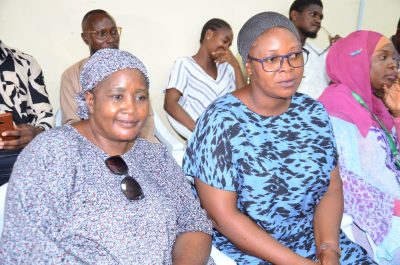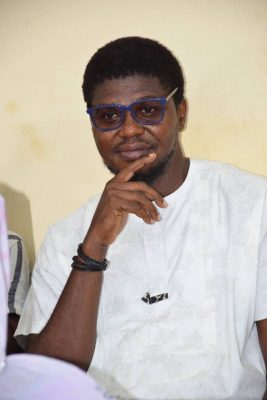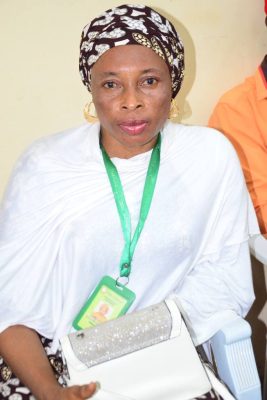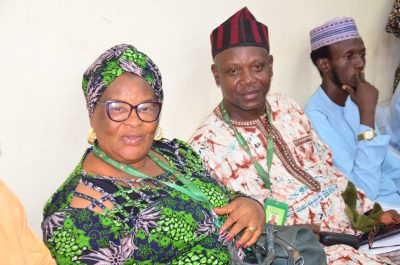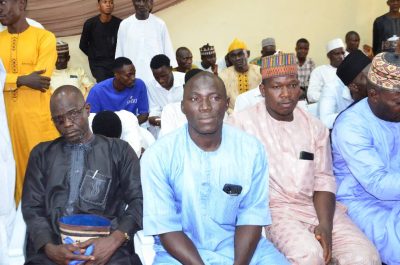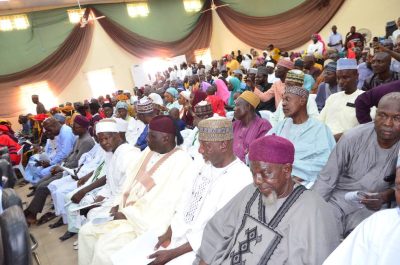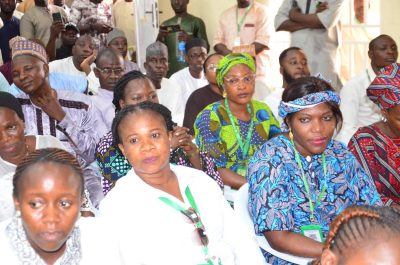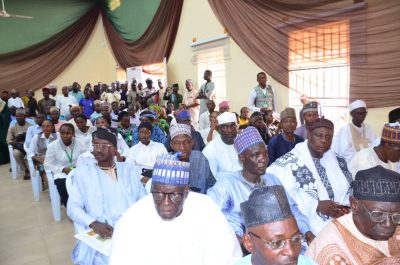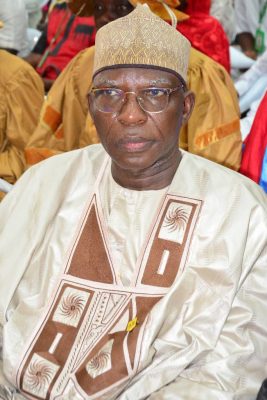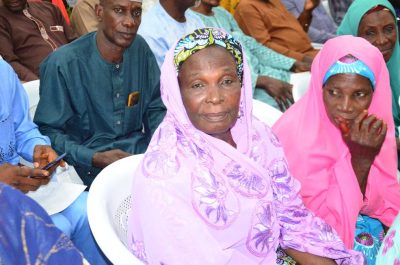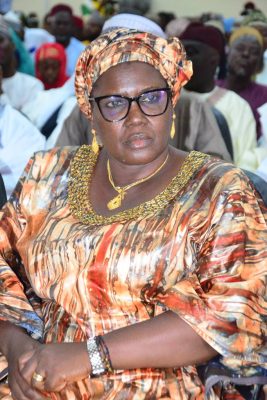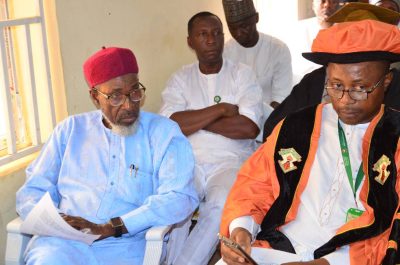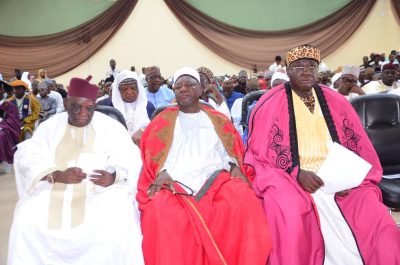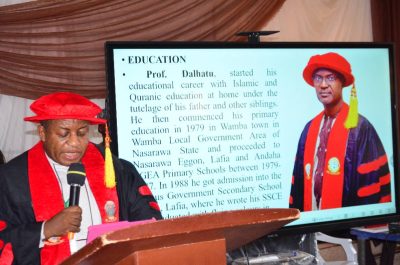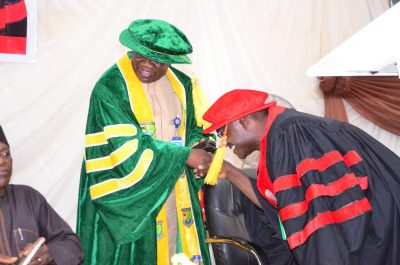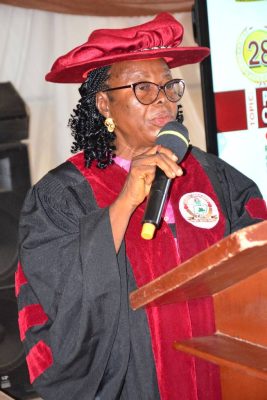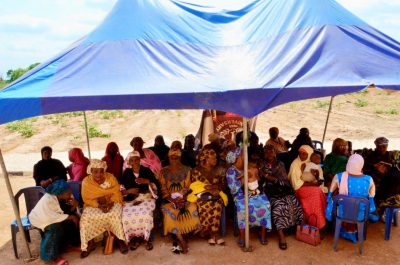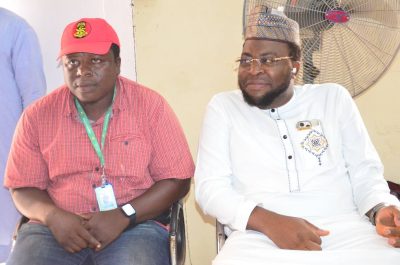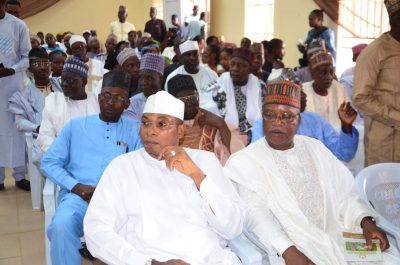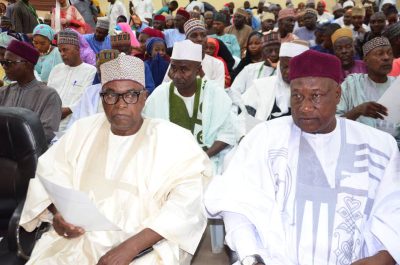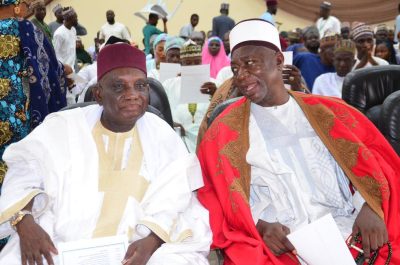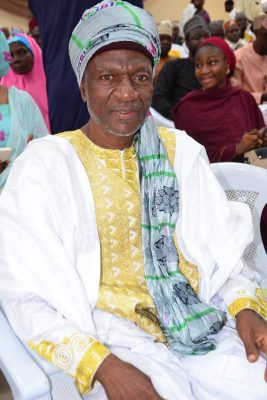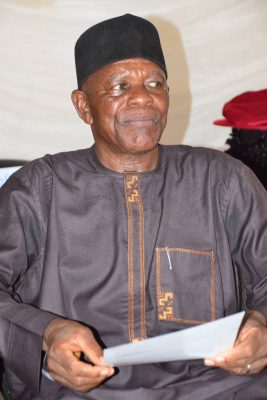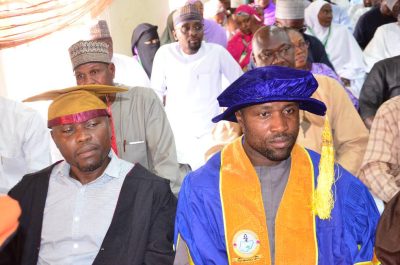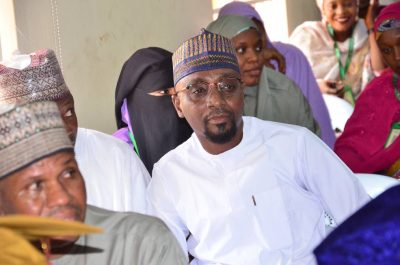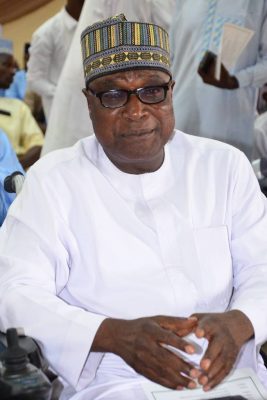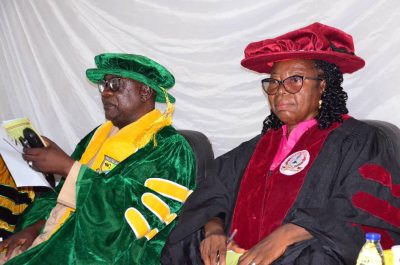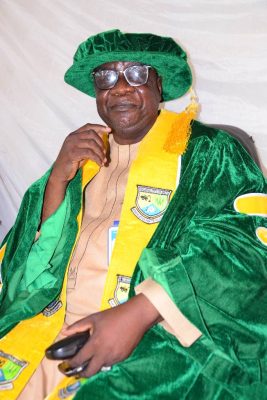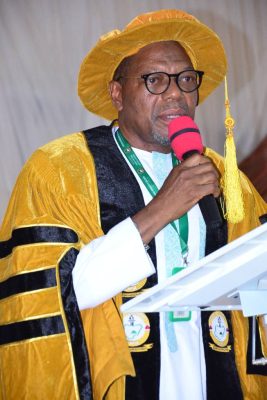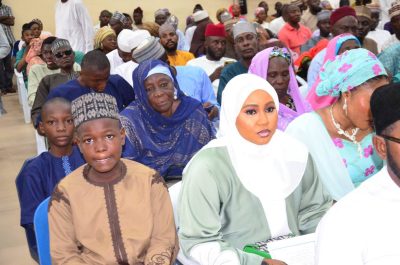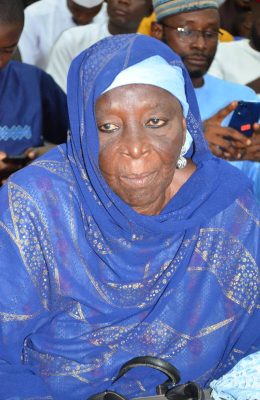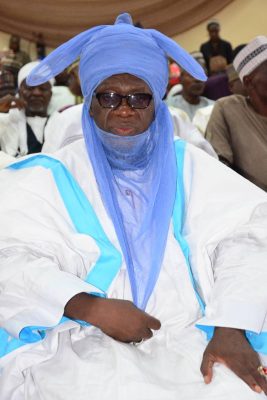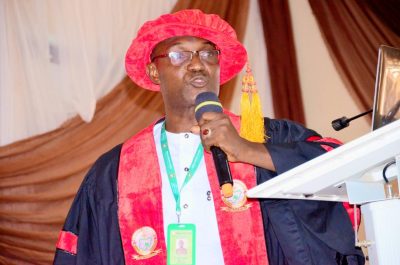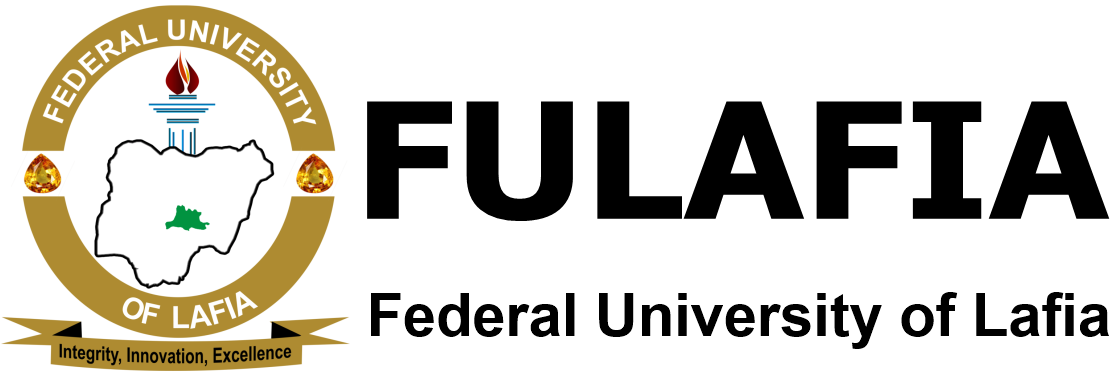Prof. Dalhatu delivers inaugural speech, urges review of federal character principle
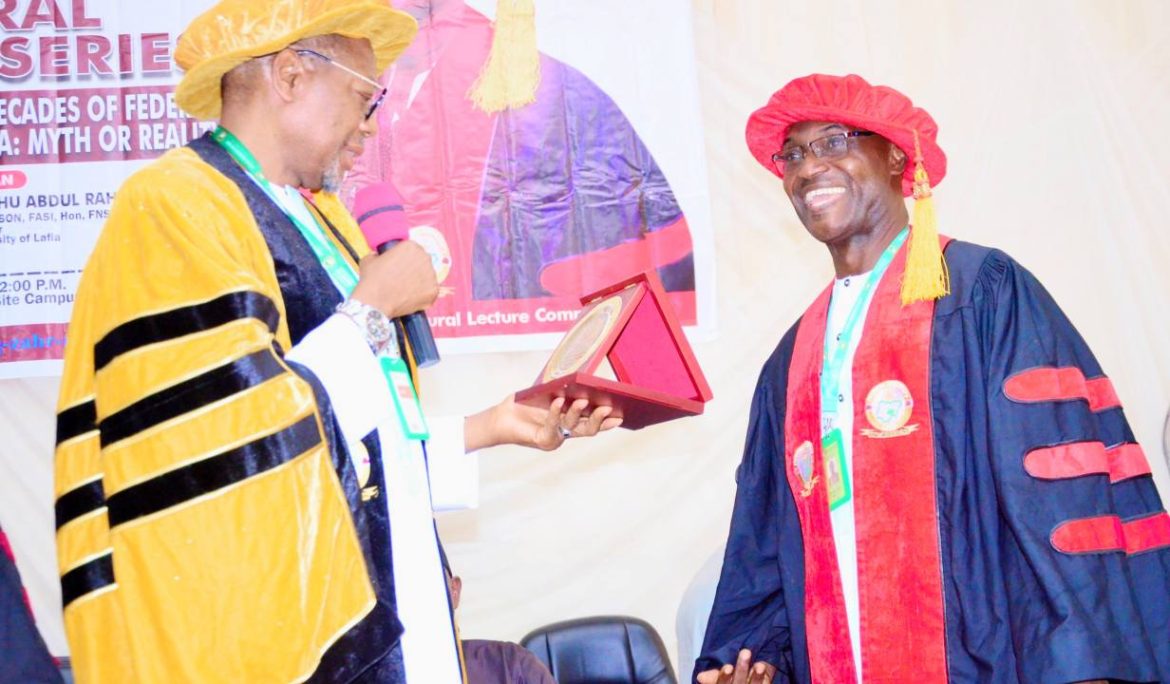
|By Musa Ishaq
In a bid to sustain the debate on good governance, social inclusion and national development, Professor Musa Yusha’u Dalhatu of the Department of Public Administration, Federal University of Lafia (FULafia), has called for the complete overhaul of the Nigerian federal character principle, describing it as an outdated tool.
According to him, the principle no longer serves its original purpose of fostering national unity and inclusion.
Dalhatu made the call while delivering the University’s 28th professorial inaugural lecture, titled: “Public Policy and the Four Decades of Federal Character Principle in Nigeria: Myth or Reality?”
The event was held at the MIS Multipurpose Hall, Permanent Site Campus of FULafia.
He argued that the principle, introduced to address Nigeria’s diversity and ensure fair representation, has been turned into a vehicle for elites’ interests preservation, rather than a solution to historical injustices or structural inequalities.
He said: “Rather than empowering disadvantaged communities, the current practice has entrenched dependency and discouraged competitiveness.”
The public policy expert described Nigeria’s federal system as overly centralised, advocating a return to true federalism.
He said that true federalism “allows states more autonomy in policymaking, fiscal control and resource management.”
He faulted the current implementation of the federal character principle, saying that “it is too focused on political appointments and ignores disparities in education, infrastructure and economic access.”
Dalhatu recommended a comprehensive constitutional review, including clarification of the citizenship and state-indigeneship dilemma, establishment of federal character committees in states’ house of assembly and increased transparency in public appointments.
He called for sanctions to be extended beyond public officials who violated the principle to include beneficiaries of such violations, stressing that accountability must be holistic.
“All Nigerians are equal under the law,” he said, adding that “no citizen should be discriminated against on the basis of ethnicity, religion, language or cultural background.”
Dalhatu criticised Nigeria’s approach to affirmative action, stating that unlike in other democracies where it was targeted at the vulnerable and time-bound, the Nigerian model is indefinite and tilted in favour of the elite.
He proposed a long-term exit strategy from such policies, advocating a shift toward equity-based development.
“We should focus less on sharing the cake and more on expanding the bakery,” he quipped, drawing applause from the audience.
In his welcome address, the Vice-Chancellor of the Federal University of Lafia (FULafia), Prof. Shehu Abdul Rahman, reaffirmed the University’s unwavering commitment to fostering critical intellectual discourse on both global and local issues.
Represented by the Deputy Vice-Chancellor, Administration, Prof Ali Is’haq Shugaba, Abdul Rahman described Dalhatu as “a man of exemplary character and unwavering integrity, whose contributions to scholarship have had a profound impact both nationally and internationally.
Earlier in the programme, Professor Josephine Odey, the Chairperson of the Inaugural Lecture Committee, commended Dalhatu’s impact in the field of public policy, noting that his works have continued to enrich FULafia’s academic community and beyond.
The event featured ceremonial presentation of gifts to Dalhatu by the vice-chancellor.
The event attracted the executive governor of Nasarawa State, Engr. Abdullahi A. Sule, represented by the Commissioner of Education, Mr John Mamman, traditional rulers, community leaders, academic dons, policymakers, students and colleagues of the Dalhatu.
